Hosting a Dinner Party
I like hosting dinner parties and, over the years, my husband and I have found a rhythm that works pretty well for us. No matter how simple, though, it’s a lot of work and can be stressful.
Combine that with a high achiever personality (me) and it’s pretty simple to let your inside voice scream in the countdown right before guests arrive “what was I thinking!!”
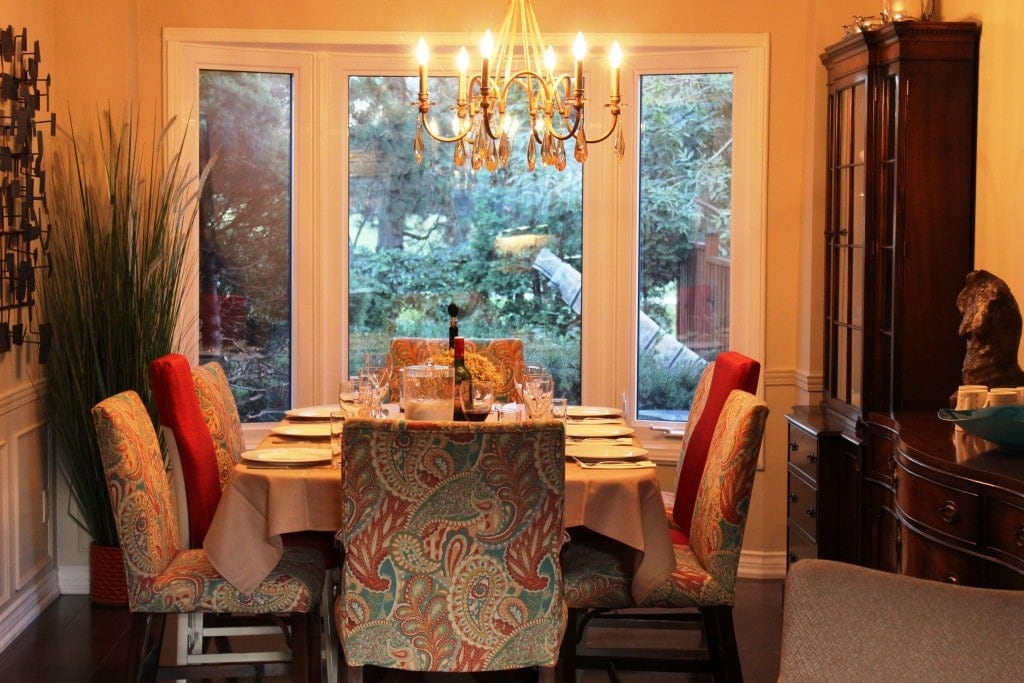
With this is mind, I offer a few tips for hosting that keep me going back for more. Typically my dinner parties include 8-10 people with friends or family. If more, I prefer to do stations, appetizers or buffet instead of a sit down dinner if possible. Eight to ten is a manageable size, especially for my husband who measures ‘manageable’ in terms of dish washer loads.
There is one thing you should know that influences my tips. Although I am relatively laid-back on many things, on dinner-party-planning I am not. Until the menu is set, I am super type A.
What Does Hosting a Great Dinner Party Mean?
A great dinner party will mean different things to different hosts of course. To me, ‘great’ achieves 3 things:
- My guests leave thinking that it was a fun evening;
- They enjoyed the food (important!) and the ambiance (relaxed, comfortable, smooth); and
- They felt that the host (me) cared about and paid attention to what they liked
Tip #1- Know what your guests like
If you don’t know some of the guests, ask them if there are any foods they don’t like or don’t eat. Obviously allergies must be considered, but I try to make sure that no one has to skip an important part of the meal or feel singled out for being a picky eater.
This doesn’t mean I won’t serve tomatoes if someone doesn’t eat them, but I’ll make sure there are alternatives and I won’t serve a tomato-based main dish. My vegetarian daughter (the other kook) has long ago taught me that just having a couple of sides for her just doesn’t cut it.
Since we invite the same friends and family over for dinner for the most part, I pay close attention to what people say about the food, what they eat and what seconds they go for. If my friends are being honest with me, they enjoy a couple of rib parties a year and they never seem to get tired of dumplings with peanut sauce as an appetizer.
Tip #2- Plan the menu well ahead
I do this early as so many other tasks stem from the menu – the shopping, the execution plan, timing, etc. I scour my various sources for ideas such as Pinterest, recipes I’ve ripped out of magazines, my own family cookbook, recipes I’ve saved on my laptop and, of course, google.
I consider a lot of things in menu planning (this is where I drive myself crazy and change my mind a lot). I:
- try to remember who I’ve served what to so as not to repeat too much.
- consider what guests like and don’t like
- plan a menu to allow myself to make as much as possible ahead of time
- consider cooking spaces (how much has to be heated or cooked at the same time)
- try to create a balanced and colorful menu. For example, I don’t serve rice, potatoes and bread together and I like to have lots of color on the plate, even if it’s just a sprinkle of parsley and some bright tomatoes with basil.
The most time consuming part of menu planning for me is figuring out the recipes or combination of recipes to use. I’ll often use parts of 2-3 recipes. I tend to over research (this is not a tip).
Attention newbie cooks: Many experts tell you to never make anything you’ve never made before. I almost always ignore this, mostly because I like to take the opportunity to try one or two new recipes when I’m having company. The downside is that making new dishes that you’ve never tried before doubles the stress (for me anyway) and, of course, they could fail. It is risky as I inevitably make adjustments the second time using a recipe. I do it anyway, particularly among friends and family who would be forgiving and kind about a goof. Maybe not the best idea for newbies though.
Tip #3- Have a helper and delegate
My husband is my helper: my set-the-table guy, my prepare-the-drinks guy, my tidy-the-house guy, my wash-the-pots-as-I-go guy, my prepare-the-coffee-service guy and my cleanup-after-the-party guy. In short, he’s my other half (and yes, simply amazing).
I know a helper like this may not be available to everyone. My suggestion is to solicit any help you can get – your kids, a sibling, a friend.
I don’t ask guests to contribute, but in my circle, they almost always offer. I’m not a “bring whatever you feel like” gal. I will, instead, respond to suggestions/offers, making sure the menu is complete and complementary. Contributions are very welcome and I am always grateful for them.
Tip #4- Plan the execution – make lists
Planning the day-of execution when hosting a dinner party is a critical step to reducing stress and enjoying the process. I try to start the shopping and preparation a couple of days ahead, making the day-of much easier and more relaxed. Lists are the backbone. The menu, the ingredients I need to buy, the tasks for the days leading up to the party.
With larger parties or special occasions such as Thanksgiving, I use a table with columns to plan serving dishes, timing (down to the hour) and oven space or alternatives. During the summer, I decide – often at the last minute based on weather – if we will serve appetizers on the back patio or inside.
My menu list (a sticky note) hangs on my cupboard over the cooking area during the day of the dinner. I learned to refer to this often after finding dishes in my fridge or microwave long after guests had left.
One more thing… I often tuck a vase in the laundry room in case someone brings flowers. That way, I’m not scrambling as guests arrive to find a vase and arrange flowers.
Tip #5- Leave time for setup and some nice touches
This is truly one of my favorite parts of throwing a dinner party. I love to set a pretty table and make things glitter with lighting and candles. I always set up flowers (low small vases so that people across the table can talk to each other).
If I don’t have time to buy flowers (or I forget), I use whatever I have in the garden, even just branches or, instead, fruit or floating cranberries for example. I have lots of small plates and bowls for appetizers (I love everything mini), but plastic plates are fine too with nice napkins. I love using shot glasses or mini cups for freshly squeezed orange juice, apple cider or pureed soup as an appetizer.
Ultimately, you need to leave a bit of time to putter around with these things which is why I try to prepare as much of the food ahead as I can. And why I need a helper!
Setting up drinks is important. This means having options on hand and not having to scramble for corkscrews, glasses etc. at the last minute. My husband has this task down pat now:
He
- usually knows what our guests like, but has several options available just in case – liquor, premixed drinks like bloody Caesars and, of course, wine;
- uses a special pen to label people’s wine glasses or there are some amazing little wine labels out there as an alternative;
- sets up pitchers of ice water and bottles of bubbly water (we make our own) on the table;
- keeps some soda cans in the fridge in case anyone asks; and
- gets the coffee measured, ready to hit the on button after dinner.
I have appetizers ready in the living room or patio (a kitchen island is great too) when guests arrive and my husband starts serving drinks. A help-yourself drink table is perfectly fine too.
Music is a nice way to set the mood as long as it doesn’t compete with conversation. We don’t often use it because our guests are very chatty.
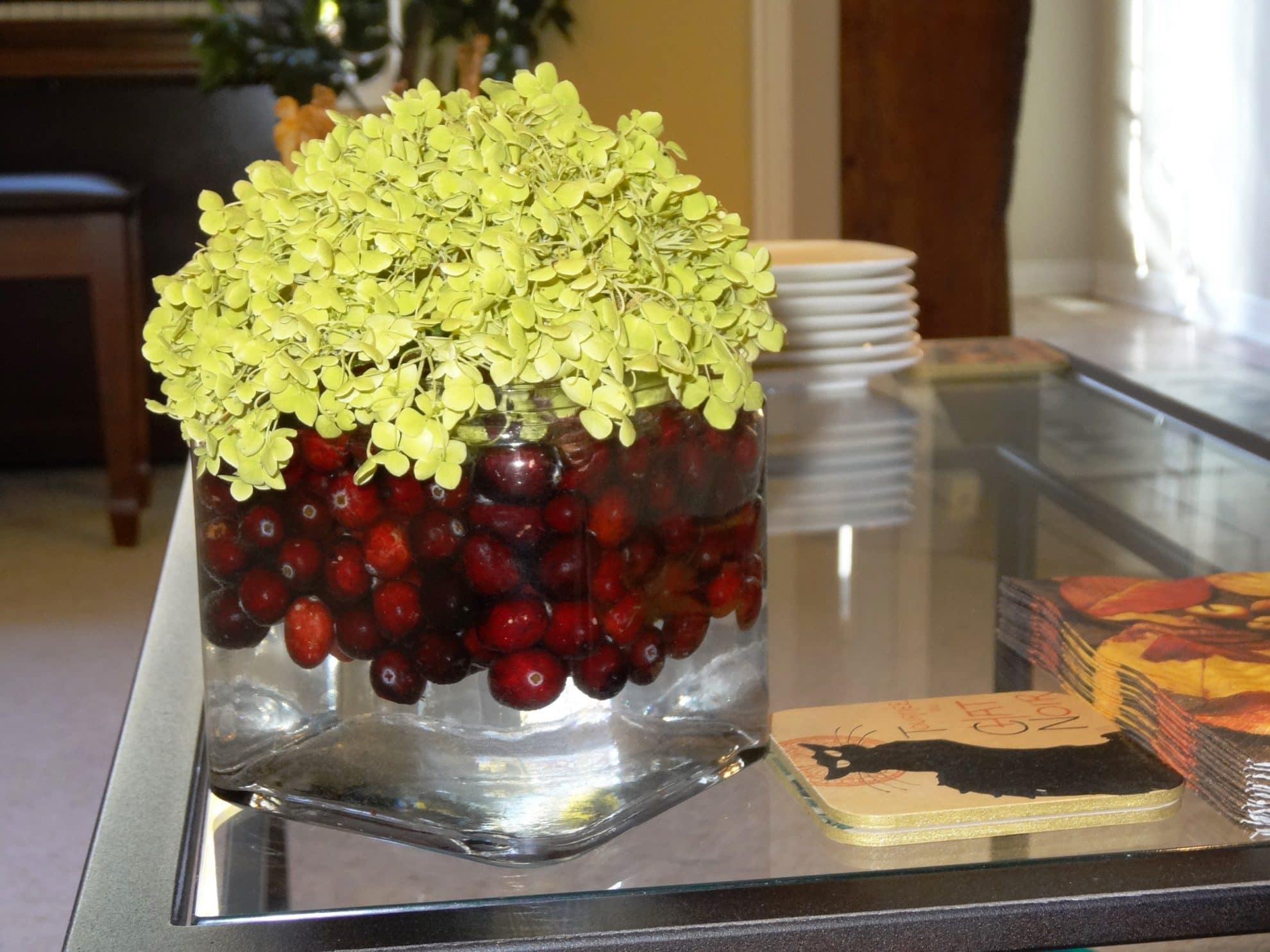

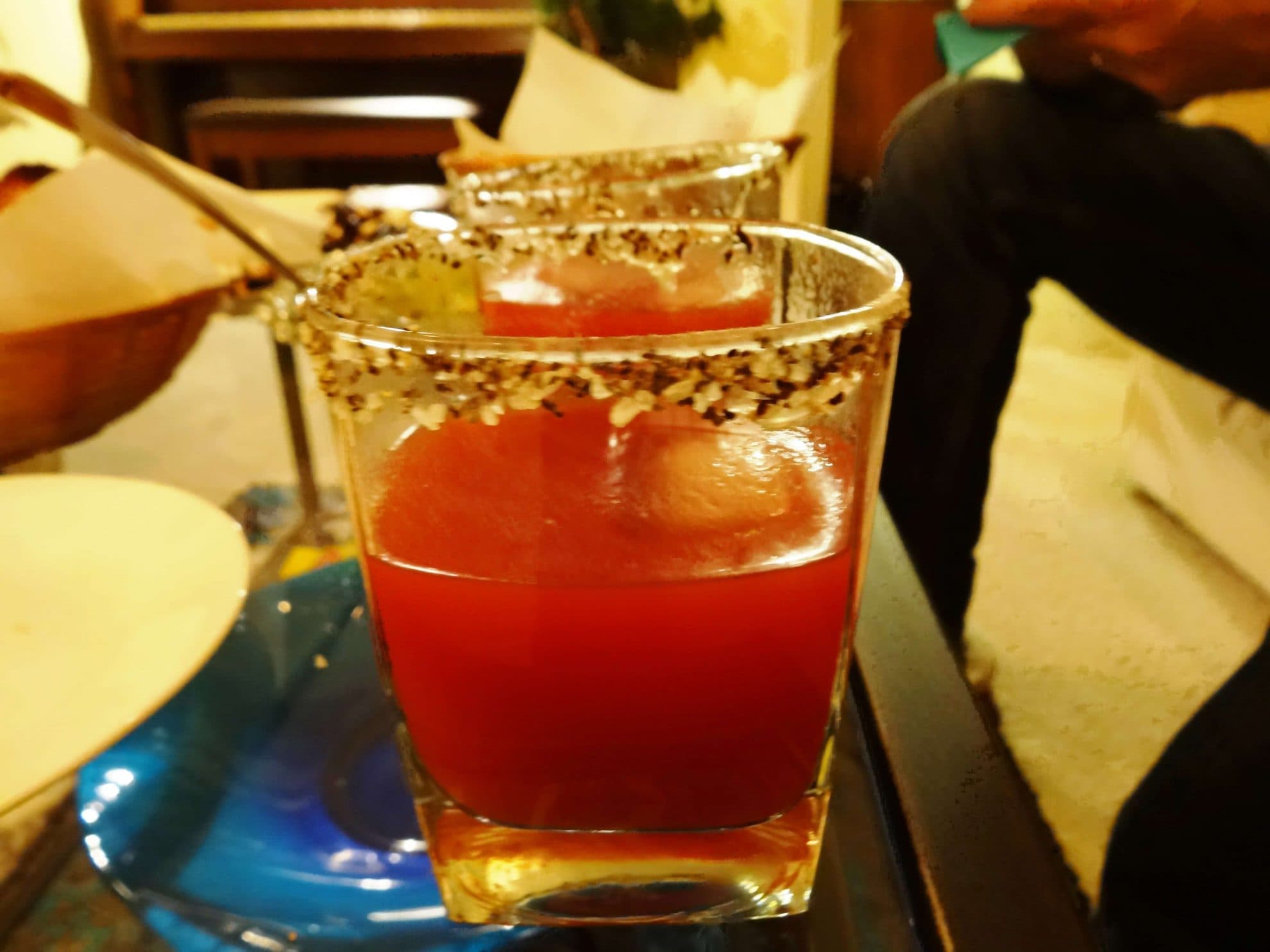
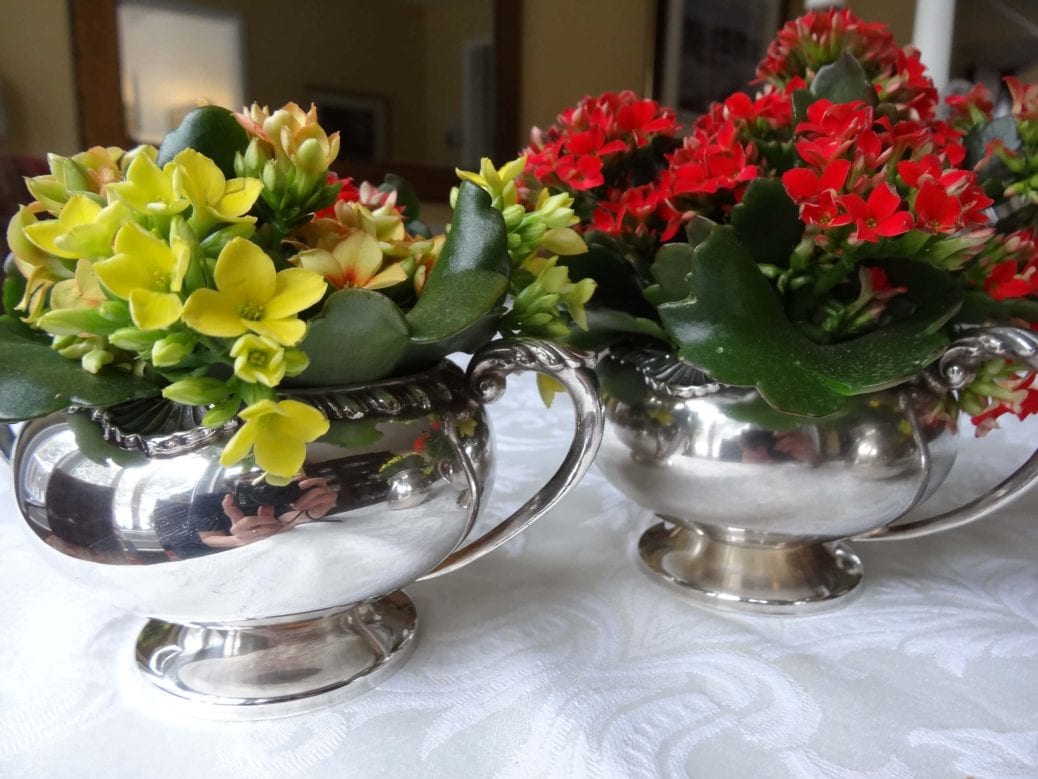
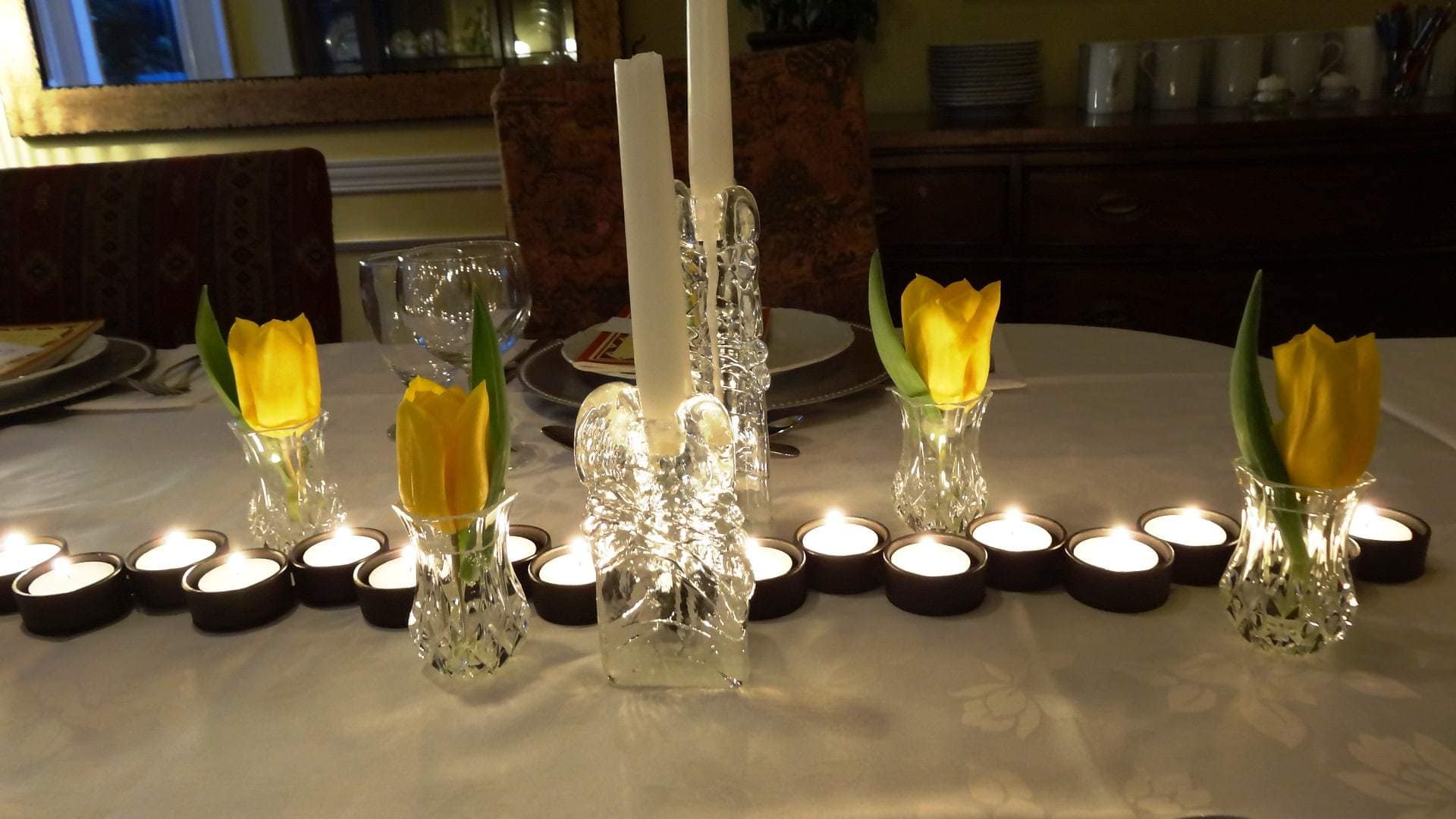
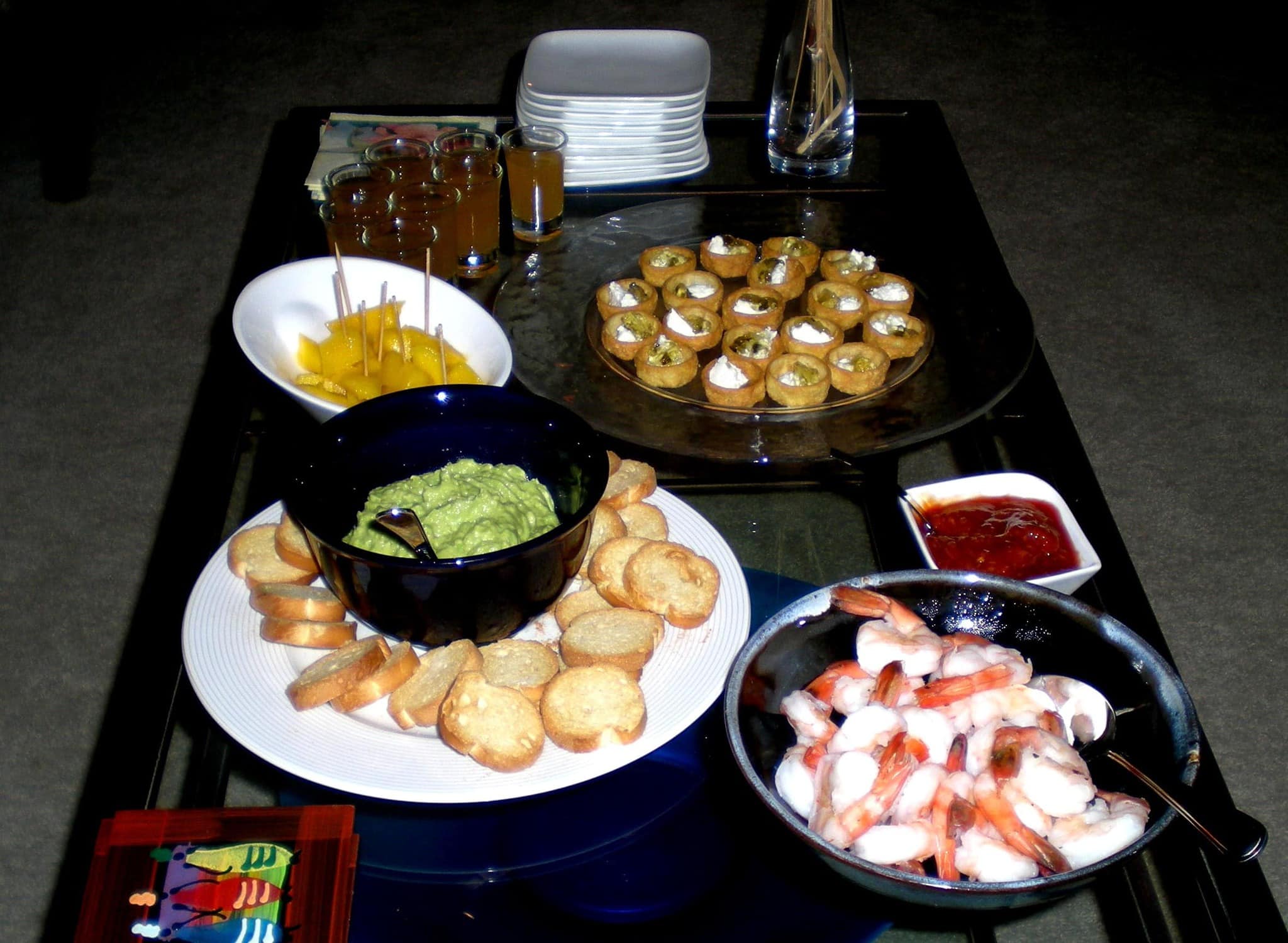
Tip #6- Make ahead
So important if you don’t want to feel like a dish rag with an aching back before your guests arrive!
I create a menu where I don’t have to be glued to the kitchen when guests arrive. Typically, this means some cold or room temperature make-ahead dishes; main dishes and sides that can be kept warm without drying out or quickly warmed in the microwave without spoiling; and prepping dishes up to the point where they only take a couple of minutes to finish them off before serving.
I also lay out my serving dishes, utensils and garnishes to make the last minute serving smoother.
My menu list (a sticky note) hangs on my cupboard over the cooking area. I learned to refer to this often after finding dishes in my fridge or microwave after dinner.
Here are some tips on How To Keep Foods Warm – another big stress when entertaining I find.
Tip #7- Start with an empty dishwasher
This would be my husband’s number 1 tip. He does the cleanup which is why this tip had to go on the list.
Tip #8- Be part of the evening when hosting a dinner party
Many groups can take care of the socializing part of the evening themselves, but I am a believer that the hosts should be an integral and visible part of the evening – and not just as servers – and throughout the evening. This, of course, is only possible with some of the tips above – plan and do ahead.
I try to make the evening seem effortless (which it isn’t) and I’m sure I don’t always succeed.
In the last few years, I set often set up the food buffet style in the kitchen and allow guests to serve themselves. This accomplishes several things: it creates a less formal dinner, it avoids passing heavy plates and bowls and it saves needed space at the dining room table. After the first round, I usually consolidate a few items and pass them around or dish out seconds. A few items like pickles and rolls etc can start and stay on the dining table.
I am not a fan of hosts washing dishes in between courses or after dinner, although I admit my husband sometimes sneeks away from the table dinner to get a head start on things (grrrr). I can’t blame him- cleanup is a big job. I think the principle here is to gauge how your guests are doing and then decide.
Most importantly, greet your guests at the door, be welcoming, set a relaxed vibe, join your guests as much as possible and don’t rush the flow of the evening. Oh, a yawn and a stretch at the end of the evening to signal that you want everyone to leave is not very cool.
Top #9- Do a debrief
My husband doesn’t do a deep dive with me on the evening much to my dismay. Probably a man thing. The most I usually get is “fine”, “nice evening” “glad you enjoyed it” “dinner was good”.
I would, of course, like a few more details and drill downs, but instead I have to settle with a little talk with myself. I like to take stock of whether my guests enjoyed the evening and the food – definitely the food (item by item). I tuck this information away for the next time.
Tip #10 – ignore all of the above if…
Sometime spontaneous is a pleasure.
One person gets the ball rolling, messaging – “what are you doing tonight?” “you want to do a potluck and a movie?” Then others pitch in with “I have some burgers we can do on the BBQ”, “I’ll make a salad and get some potato salad”, “I’ll bring dessert”, “I have paper plates”, etc.
This type of evening requires almost no planning, very little effort, has no expectations and is pretty much stress free. PERFECT!!
